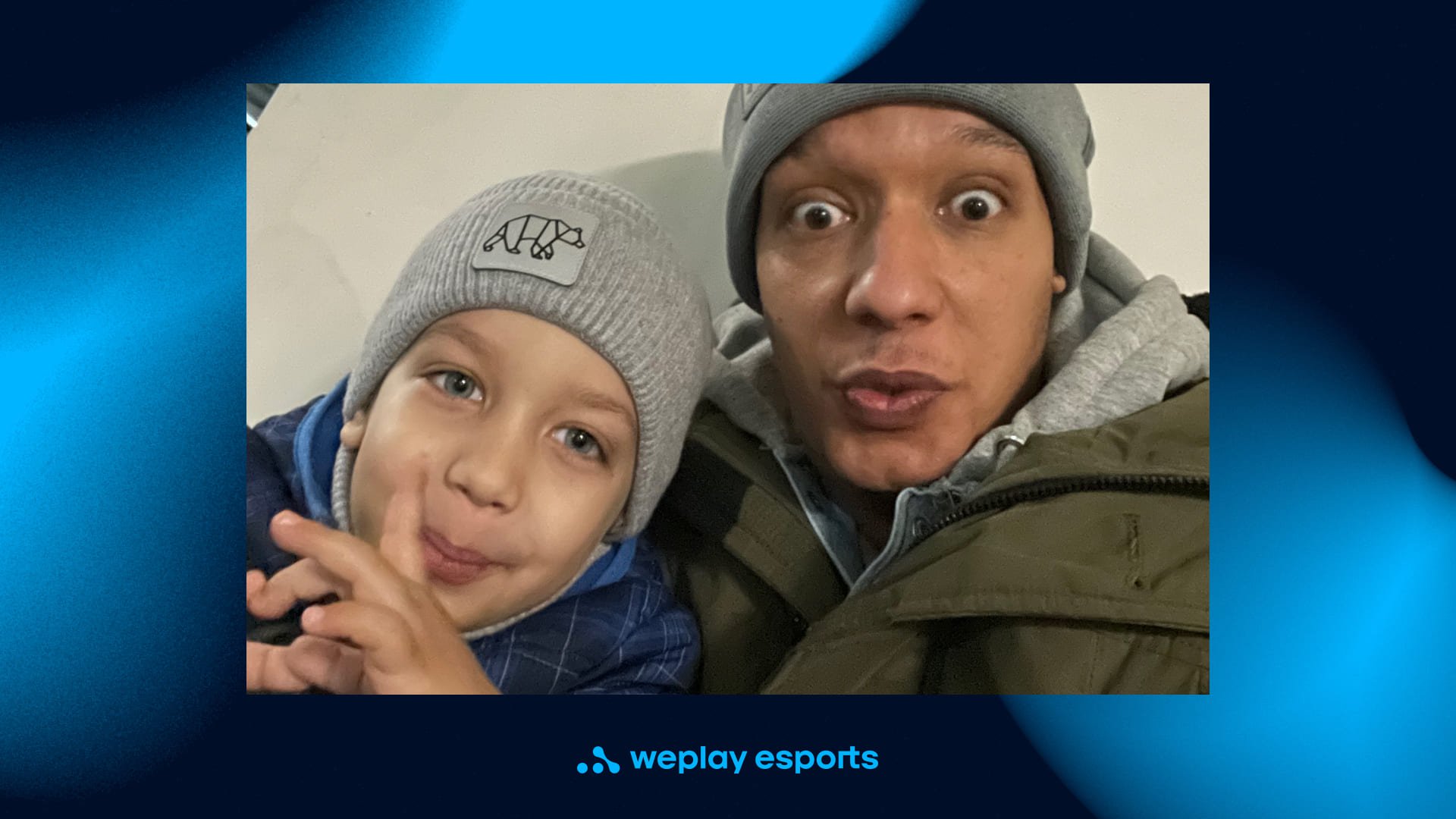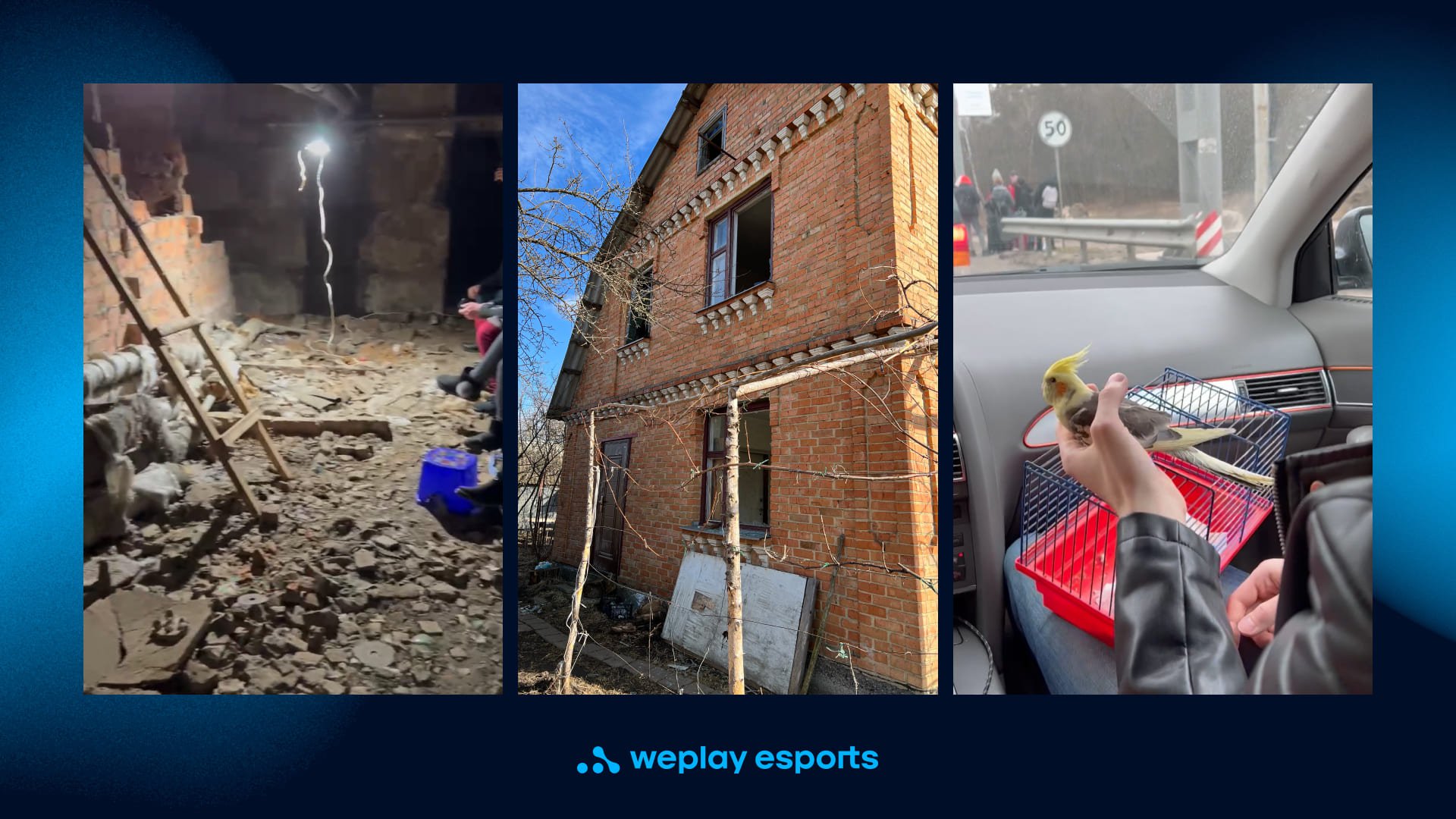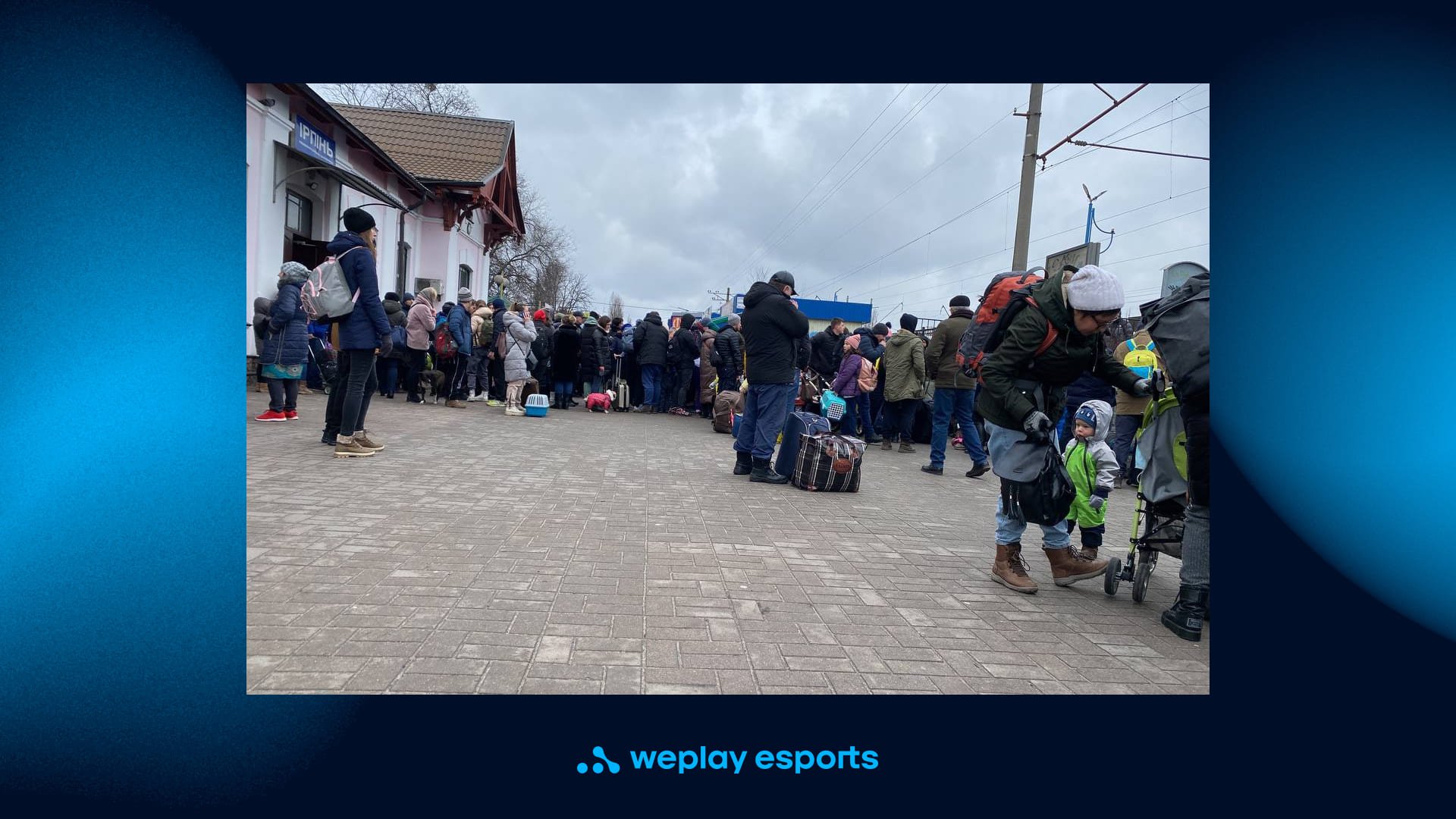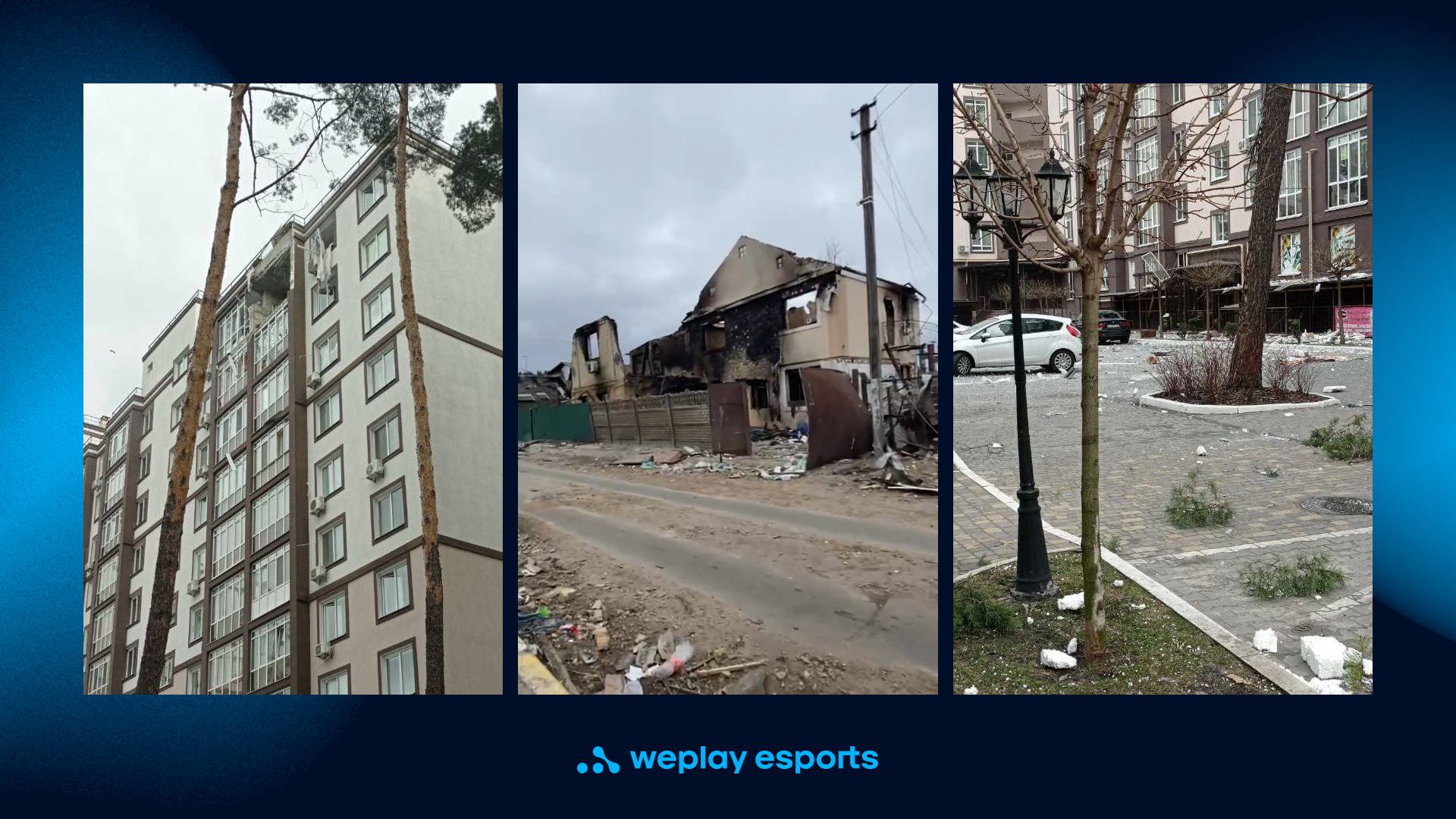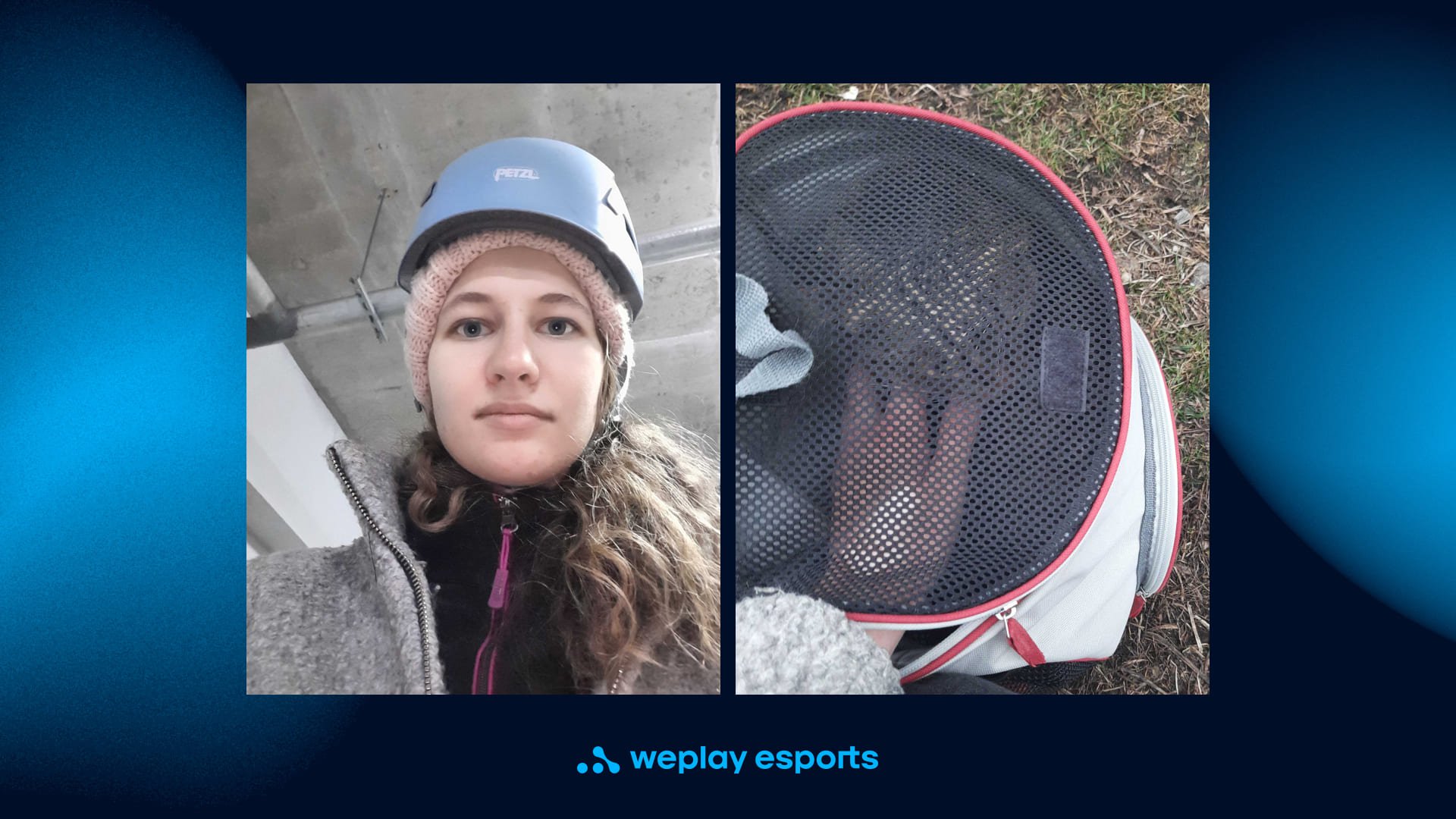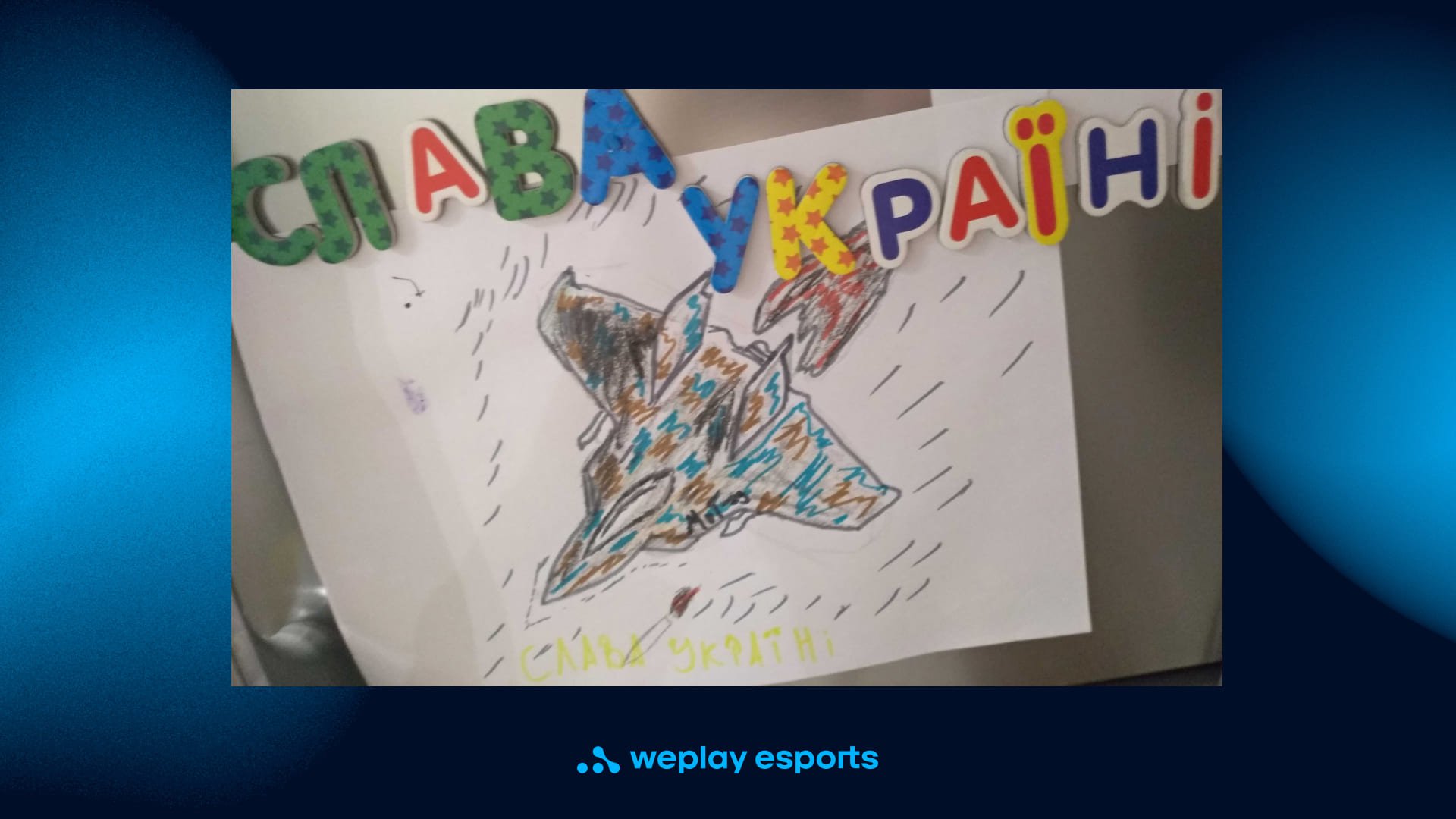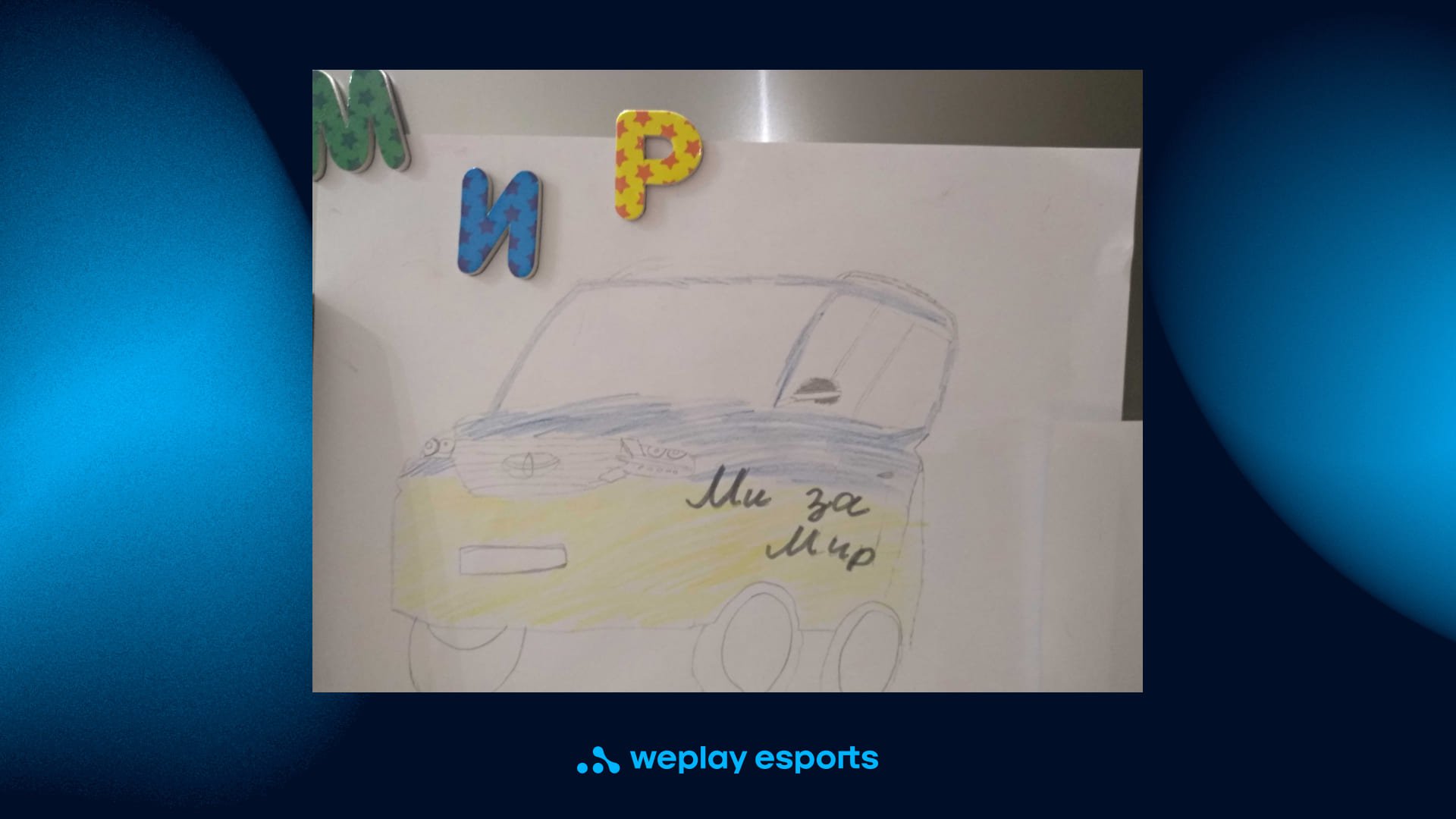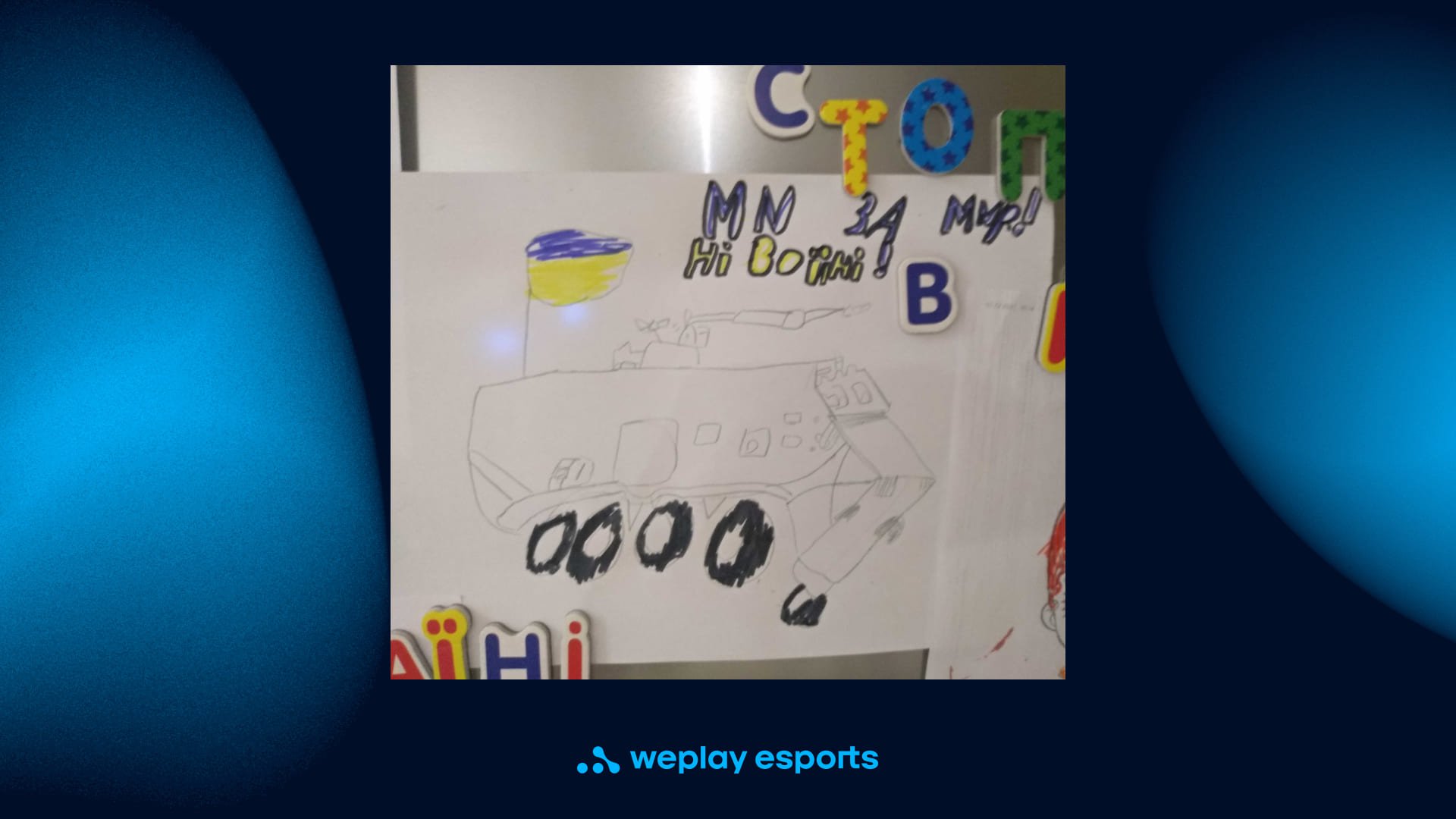March 23, 2022
Russian invasion through the eyes of WePlay Holding employees
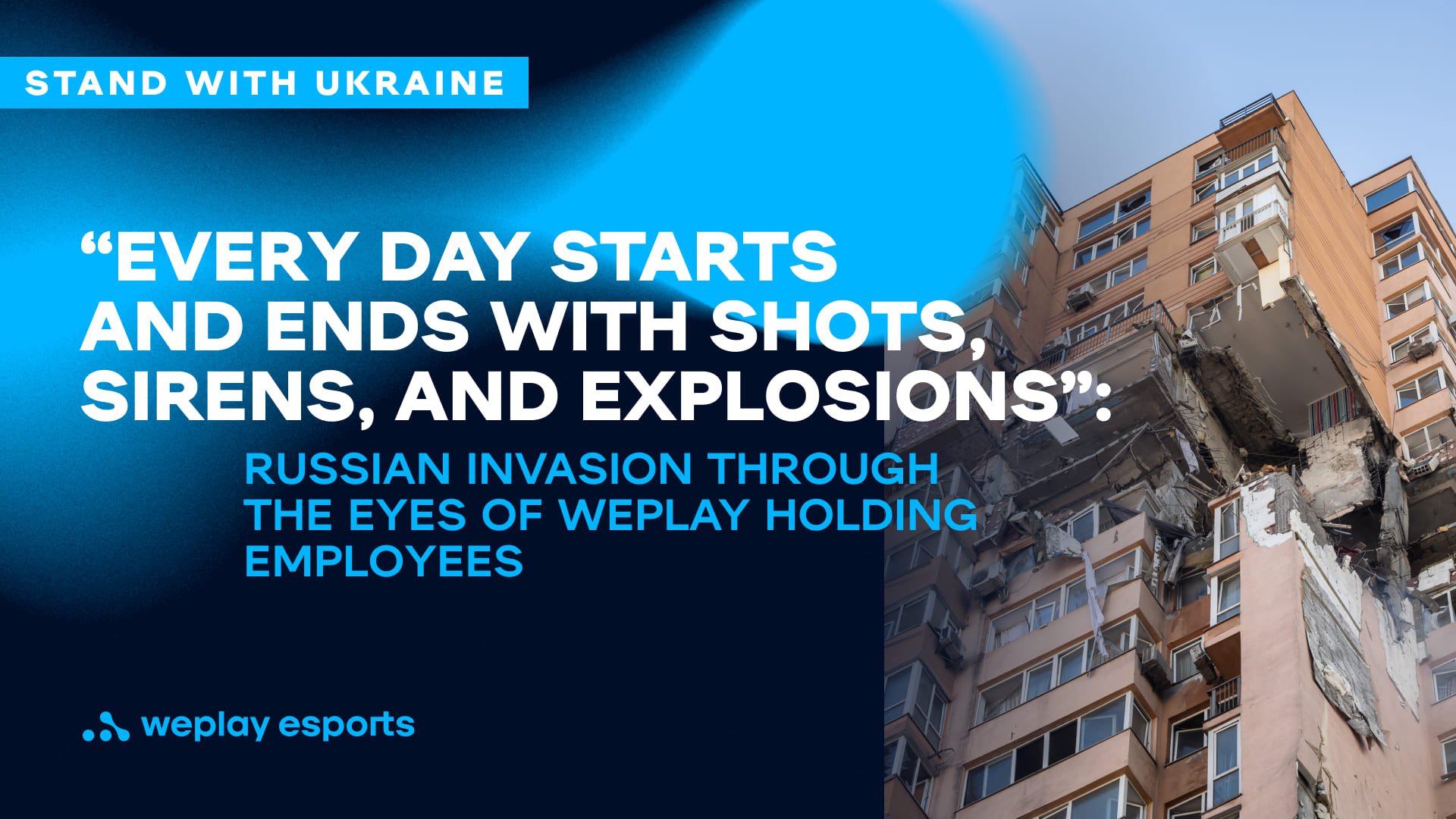
8 min read
No one knows when war will knock at their house. But when it comes down to it, you just try to adjust to the new environment and do your best to stay alive.
The war caught WePlay Holding’s workers in different places. Some were jolted awake by the sound of bombing, while others woke up to the calls of alarmed relatives.
“At about 5 a.m., I woke up to loud explosions. I couldn’t understand what was going on. After the explosions, I saw fighter planes flying low. It was frightening. My relatives started calling. They asked a dozen questions, hoping I could answer. A few hours later, we saw a video and photos of Russian aggression,” said Ioann Yuresko, implementation support specialist and Discord server manager.
“It started on a Thursday morning. I was sick and planned to rest all day because I had a cold. I got up at 9 a.m. with a bunch of missed calls and messages and realized that Russia had invaded Ukraine,” shared his experience Mike Martinez, English teacher.
While the facts were there, some still could not believe it. War? It must be some kind of joke. While civilians wanted peace, the Russian army would brutally bomb their hometowns.
“My mind refused to believe it — the capital should be safe, it should be heavily defended, a war couldn’t just break out in a modern European democracy these days! Turns out it could,” commented Yaroslava Yakovenko, proofreader and translator.
“Like many Ukrainians, I faced the war at 5 a.m. While I kept thinking it was just a nightmare, my husband and a ton of messages convinced me that it was real. I survived Luhansk in 2014, so I felt no fear or panic. Fear came to me in the store, when I saw people burst into tears. My family spent the next few days at our parents’ house or their summer cottage, with a lot of sleepless nights,” described her first day of the war Darina Briukhovetska, head of DashFight.
First days of the war
The bomb shelter map is available to everyone, but not everyone has the opportunity to get to one of them. Therefore, you have to look for the nearest safe place and pray that the night ends soon.
“My boyfriend, my sister’s family, and I left Kyiv with our pets on the first day of the war. Seeing adults and children fleeing the city without cars or luggage while military machinery was being rushed to the capital was appalling,” shared her experience accountant Nataliia Smetanska.
“I spent 13 days under shelling in Irpin, losing my Internet connection and electricity from time to time. No day would go by without explosions. Missiles and their fragments would hit small single-family houses. On the second day, it was no longer possible to leave the city. My boyfriend and I took turns sleeping to be ready for when the next shelling started. 3.5 km from us, missiles destroyed a residential building. People were stuck in the basement, some were wounded. Notably, there was not a single military facility. We had wanted to flee the city on foot. The folks from territorial defense said the Russians would either kill and rob us or take us prisoner outside the city. Several times we tried to leave the city by train. The second time, 10 minutes before departure, explosions started again, and the city mayor said that the railway had been destroyed.
The territorial defense led everyone to the destroyed bridge. There were about 1,000–1,500 people. It was hard to count, but there was a huge crowd under the bridge, and people kept coming. We stood by the river for about two hours, then managed to cross over to the other side and ran towards our checkpoint. There were evacuation buses waiting,” shared her story of evacuation Alina Lykhasenko, WePlay Esports journalist. Alina lived in Irpin, a small town near Kyiv. Irpin was one of the first cities attacked by Russian military forces. For several weeks, she watched what her city was turning into because of the war.
I put up a tent in the underground parking of my building. During the day, I would snatch every chance to come back to my warm apartment, making use of each quiet hour frantically showering, cooking, washing, feeding my cat Luna, but at each air raid alarm, I would scramble for the parking carrying a backpack containing my valuables and another one containing my cat. It was there that I spent the first two nights of the war. My nerves were worn so thin that I could hardly focus on my work, had barely eaten or slept. I was ready to flee, but the way out could well be dangerous,” remembers Yaroslava Yakovenko.
“During the first days, I was in the subway. It was the only place where. I didn’t hear explosions. On the third day, having teamed up with my neighbors, I started hiding in the basement. Then we realized that our basement was no safer than home and decided to stay in the entrance hall together in case of an air raid siren,” says Vova Dynnik, design manager.
Many were taken hostage in their own cities, unable to leave because the Russian army wouldn’t stop shooting. However, there is safety in numbers.
“Every day starts and ends with shots, sirens, and explosions. We had to sit in a cold shelter, and our companions caught a fever. I couldn’t focus on work because of all this madness. My nephews have never heard the sounds of bombing, but now they spend days drawing pictures “Say No to war,” says Ioann Yuresko.
We hold on — we win
Giving in to panic is the first step to losing. And, as the threat of war hung over Ukraine since the moment the neighboring country started concentrating military forces at the border, WePlay Holding’s employees had long been working on their plans for such a case. However, they hoped that they would never have to use it.
“I called my ex-wife to check on her and my son. I had to take them in, so I arrived as quickly as possible. Then we teamed up with my neighbors into groups of four people to guard the building in shifts. I patrolled for three hours in a row with a gun. Besides, our group transported mothers with children to the shelter in our building to get help. As soon as my shift ended, I hoped that now I could get some sleep. But I didn’t have time to lie down when a shell fell near my building, and everyone rushed to the bomb shelter. It was only the first of the worst nights,” described his first day of war Mike Martinez.
In this tragic time, people are helping and supporting each other. While the military forces of Ukraine are bravely fighting the invaders, civilians are caring about those who have had it worse. There are many ways to help, like delivering medicines, cooking for people, setting up bomb shelters for permanent residence, etc.
“Many are a lot worse off than my family and me. So in the morning, I try to deliver food and medicines to those who need them, while at night, explosions and bombings start all over, and we do our best to secure the building,” said Mike Martinez.
Sharing information, volunteering, attacking Russian sites, reaching out to foreign partners for support is also helpful.
“My friends and I organized the purchase of things from Europe that our defenders and civilians require. We try to find those who need help and those who can help. In our spare time, we bring down Russian sites and run ads for Russians to open their eyes and show them what Putin does,” mentioned Darina Briukhovetska.
Every resident of Ukraine is now fighting not only for themselves and their family but for the whole nation’s future. Russia attacked an independent European country, meaning that Putin doesn’t care about democracy and the sovereignty of another state. Unable to seize Ukraine, he systematically destroys infrastructure and cities that existed long before Russia and the USSR. All Ukrainians are united by one goal — to stop the invader. Such motivation cannot result in anything but victory.
